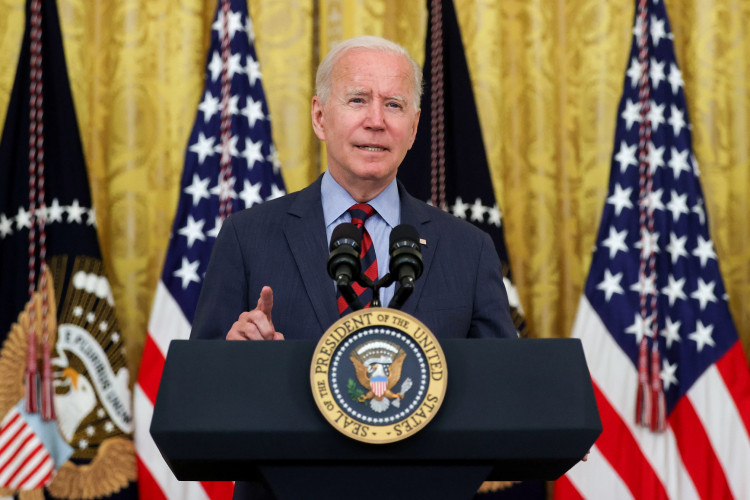U.S. President Joe Biden has signed into law a bipartisan bill that bans the import of enriched uranium from Russia, marking the latest effort by the United States to apply further pressure on Vladimir Putin over his ongoing invasion of Ukraine. The legislation, known as the Prohibiting Russian Uranium Imports Act, cuts off a significant source of revenue for Russia, which is estimated to be around $1 billion per year from the US alone.
The ban on Russian uranium imports will take effect in approximately 90 days, although the Department of Energy (DOE) is allowed to issue waivers for companies to continue importing until 2028 if they do not have another viable supplier. Russia is the world's top supplier of enriched uranium, with about 24% of the fuel used by US nuclear power plants coming from the country.
The US's reliance on Russian uranium has been a cause for concern, particularly in light of Russia's diversification into other areas that benefit its war efforts. Reports have detailed the role of Russia's state-owned nuclear corporation, Rosatom, and its subsidiaries in funneling equipment and resources to the country's military. As Lloyd Doggett, a member of the House of Representatives, wrote last month, "As Rosatom and its subsidiaries continue to diversify into sectors beyond the nuclear industry, the company has become an unsanctioned funnel for hi-tech products, not to mention for additional revenues, to strengthen Putin's war machine."
The delay in banning Russian uranium was driven, in part, by the US's reliance on Russian imports and fears that the country's 93 nuclear reactors could be disrupted by a lack of fuel. Currently, the US's domestic enrichment capacity can only supply about 30% of the fuel required by its nuclear reactors, according to a US House report on the newly passed legislation.
To address this issue, the Prohibiting Russian Uranium Imports Act unlocks approximately $2.7 billion in funding to increase capacity in the US uranium fuel industry. Kathryn Huff, the DOE's assistant secretary for nuclear, stated last week that the US has been preparing since 2022 for the possibility that Putin could stop selling uranium to the country by working to boost domestic capacity to process uranium fuel.
The House report on the new law also mentioned that one US conversion facility is already restarting and will be able to supply the equivalent of about "40% of US market demand in the near term." Additionally, countries such as Canada, France, and Japan are expected to help the US deal with an "allied alternative" to Russian uranium, according to Huff.
White House national security adviser Jake Sullivan emphasized the importance of the new law in a statement, saying that it will "strengthen our nation's energy and economic security by reducing, and ultimately eliminating, our reliance on Russia for civilian nuclear power." The law firm Morgan Lewis, which counsels nuclear reactor owners on fuel supply and regulatory issues, also noted that "other sources of uranium and enrichment services, along with a rebuilding domestic fuel cycle industry, should eventually blunt any significant impacts from the act on the US nuclear industry."
The signing of the Prohibiting Russian Uranium Imports Act comes as the US and its allies continue to impose sanctions on Russia and its vast energy industry in response to the ongoing war in Ukraine. The ban on Russian uranium imports is a significant step towards reducing the US's reliance on Russian energy sources and strengthening the country's energy security.




